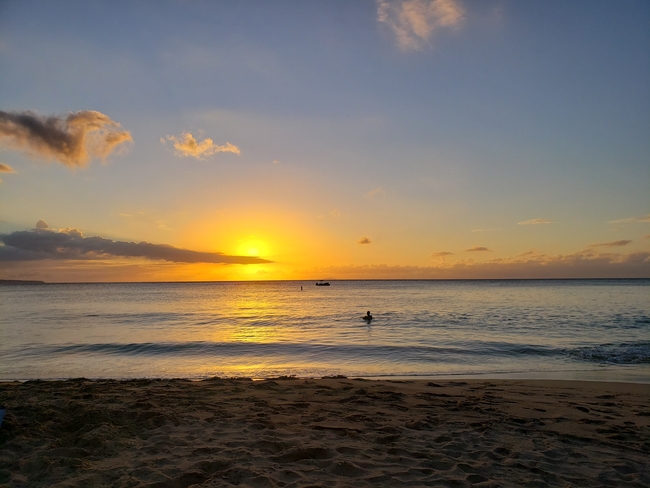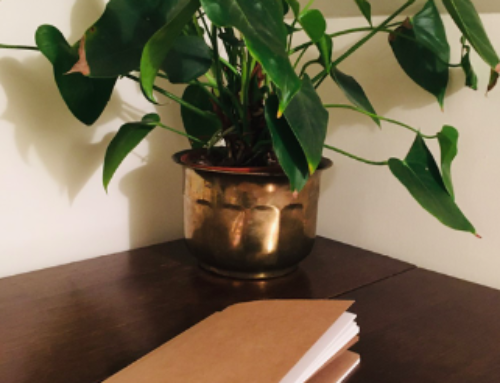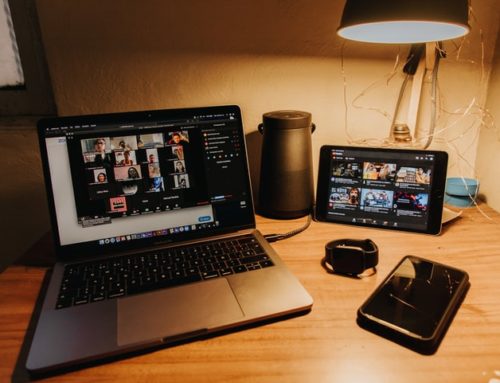Tomorrow will be my first day of classes in the Spring Quarter term at Kalamazoo College. Like most of the academic world, I will be teaching online. I have never taught courses online before. I am fortunate that the majority of my classes are relatively small, usually about 20-30 students. I usually rely heavily on discussion in my classes, so the shift to (mostly) asynchronous online delivery of content is anathema to my style. But given the circumstances I am adapting.
My guiding principle came from a casual Instagram post by the writer Adrienne Marie Brown, who posted that, “even birds coast when they can.” This short phrase authorized me to follow the path of least resistance and it reminded me of the wisdom I gained from my martial arts training in Judo. In Judo, when your opponent pushes, instead of pushing back, you yield and use their force against them to drop them to the floor. These two mental touchstones, “coast when you can” and “don’t push but yield” have guided me as I create a blog for my class, set up Facebook groups, organize Moodle pages, record lectures and messages to my students on YouTube, attempt to keep up with an overwhelming email cue, and deal with my own anxieties not only about how to teach but about whether the strange feeling in my throat is a result of infection.
I’ve decided to follow the path of least resistance. Even though Facebook is a miserable corporate platform, it is the one most likely to be familiar to my students. Instead of forcing myself and them to learn a new platform right now, we’re going to coast and just create a Facebook group. Only a handful of students will find this challenging, the stalwart ones who up to now had refused to open Facebook accounts.
But besides these technical questions, the how-to’s, the instructional webinars, the slightly panicked messages from university administrators, there is a deeper, much more disturbing question. It goes something like this: Where will we be in two weeks? In three or four? Can we sustain ten weeks of online instruction with students and professors who will increasingly have to contend with infections, critical illnesses, and possible deaths in their families and communities? Is it worth it to try and teach when all of us are consumed with anxiety, fear, uncertainty? Will we stop receiving paychecks if we can’t maintain a semblance of normalcy?
These are clearly not normal pedagogical conditions. Teaching in these times is more a matter of psychological first aid for students. Like primary school educators who are checking with students to see if they are eating, have safe shelter, are healthy or receiving medical care, university professors like myself and many of my friends are worried about students from underprivileged backgrounds who may not have safe shelter or access to health care at home, whose family members may be recently unemployed or ill, who may not have reliable access to internet or quiet space to read and write, and especially to those who may be going hungry, or who are worried about parents or relatives who are undocumented and still being hunted by ICE, whose fascistic raids continue even amidst the largest health crisis the world has seen in a hundred years.

A friend of mine asked me today, “Why should we keep pretending to teach under these circumstances?” There’s no good answer but I think most of us are doing so because we care about our students and we want to provide them (and perhaps ourselves, too) some semblance of normalcy, or at least a place to vent their experiences, to share collectively our thoughts and emotions about what we are experiencing, to be able to somehow touch base and remind ourselves we are people who do things other than constantly scan and monitor our bodies for signs of infection, obsessively clean surfaces in our homes, wash endless piles of dishes, and attempt to read between the lines of news items and press conferences where the reality of what we are living through is not being acknowledged and much less addressed with the seriousness it deserves.
Educators have to do more than just offer a space of respite in these terrible times, however. We must remind our students of their own power. The younger generations are the ones most likely to survive this cataclysm, and we must give them the knowledge, self-confidence, inspiration, motivation, and the epistemological tools to trace their path to the future.
Just because we are stuck at home doesn’t mean we can’t organize for a better future. We are still capable of communicating, thinking, creating, preparing, strengthening our bodies and our resolves. Each of us from our own disciplinary or interdisciplinary locations is capable of illuminating and fostering this process in young people. We must dig deep into our reserves of personal fortitude, not to prop up the deeply oppressive educational system that pays us, but to support, encourage, and inspire our young people so they can believe in themselves and in their own power to overthrow the system of destruction that has led us to this point in human history.
In the last few weeks, I have participated in more webinars than I can count. Although these are often necessary for faculty like myself who have never taught online before and are scrambling to figure out how to do it, they often seem like Zoom infomercials and are not spaces conducive to reflecting on what the task at hand for us really is. I’ve given up on trying to be a great webinarist. When I feel pressure about what I look like on camera or if I have enough technical expertise I remind myself of those birds riding the wind, not flapping their wings; just coasting.

For my own inspiration, I went back to read Antonio Gramsci’s Prison Notebooks, specifically the chapter “On Education,” wherein he wrote that “learning takes place especially through a spontaneous and autonomous effort of the pupil, with the teacher only exercising a function of friendly guide – as happens or should happen in the university.” This figure of the friendly guide comports with my vision of myself as someone whose teaching is ultimately geared not to the preparation of future anthropologists, nor to the molding of “professionals,” but rather as someone whose primary motivation for teaching is to bolster intellectual autonomy and foster creativity in my students.Gramsci’s call was to use education as a means to develop the innate capacity for intellectual analysis that exists in everyone without forgetting that studying is a “process of adaptation, a habit acquired with effort, tedium and even suffering.” We are in for a lot of effort, tedium, and suffering, no matter how good we get at using video conferencing platforms and online repositories. We had better figure out why we are willing to suffer in this way, other than just for a paycheck on which for many of us hangs our own ability to survive into the next month of quarantine. And to reduce that suffering as much as possible by lowering our expectations of ourselves and of our students seems like a good idea. But this is not the same as giving up on the deeper work, that which builds intellectual capacity, social leadership, and mental strength in our students. Let us yield and go with the flow by responding to our students’ needs and ideas by being present with them in the fear and uncertainty of this moment instead of pushing at the historical conjuncture. Let us coast like birds on the wind.
Cite as: Garriga-López, Adriana. 2020. “Coasting the Future: Teaching as Resistance in a Pandemic.” In “Pandemic Diaries,” Gabriela Manley, Bryan M. Dougan, and Carole McGranahan, eds., American Ethnologist website, 2 APRIL 2020. [https://americanethnologist.org/features/collections/pandemic-diaries/coasting-the-future-teaching-as-resistance-in-a-pandemic]Adriana Garriga-López is associate professor of anthropology at Kalamazoo College. You can find her on Twitter at @anthrorican




